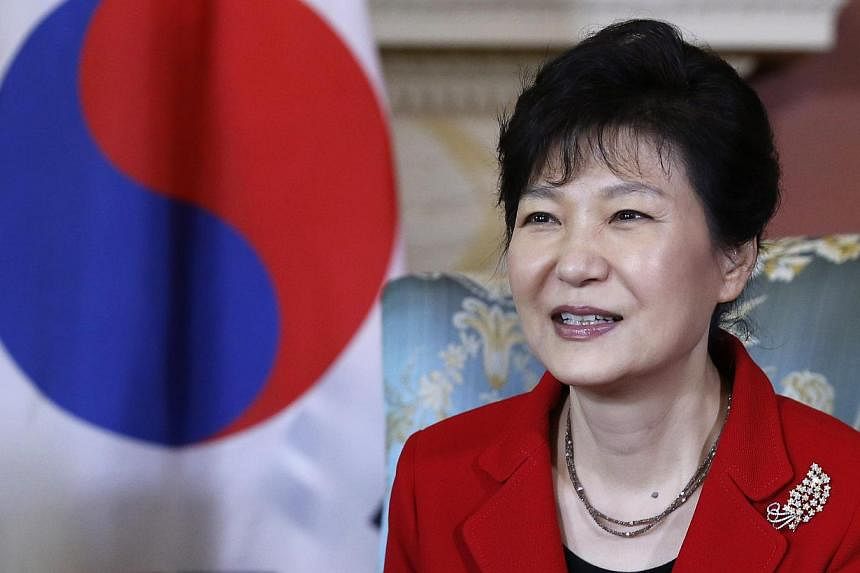SEOUL (AFP) - South Korean President Park Geun Hye on Monday hit out at "groundless" rumours circling her administration, some of which have touched on her personal life and triggered defamation suits against domestic and foreign media outlets.
"There have been a lot of groundless allegations. It's time to reveal the truth so that people should not be thrown into confusion any more," Ms Park said in televised comments to senior advisers.
The latest allegation, made by the local Segye Times daily, is that former Park aide Jeong Yun Hoe, who holds no official administration position, has been meddling in state affairs. Citing an internal presidential office document, the Unification Church-owned newspaper said Mr Jeong received regular briefings from senior presidential officials, and had pushed for the dismissal of Ms Park's current chief-of-staff.
The presidential Blue House insists the document is inaccurate and state prosecutors launched a probe on Monday into how it came to be leaked.
The officials named as those who briefed Jeong have filed a defamation suit against the Segye Times.
"If there is any malicious slander, those responsible for it will he held accountable," Ms Park said.
This all comes days after the trial opened in Seoul of a Japanese journalist accused of defaming Ms Park in a report regarding her whereabouts on the day the Sewol passenger ferry sank with the loss of 300 lives.
The story picked up rumours circulating in the South Korean media and stock broker houses that the unmarried Ms Park had disappeared for a tryst with the same former aide.
South Korean defamation law focuses on whether what was said or written was in the public interest - rather than whether it was true.
Media freedom group Reporters Without Borders has criticised the trial of the Japanese journalist, arguing that his report was clearly in the public interest.

